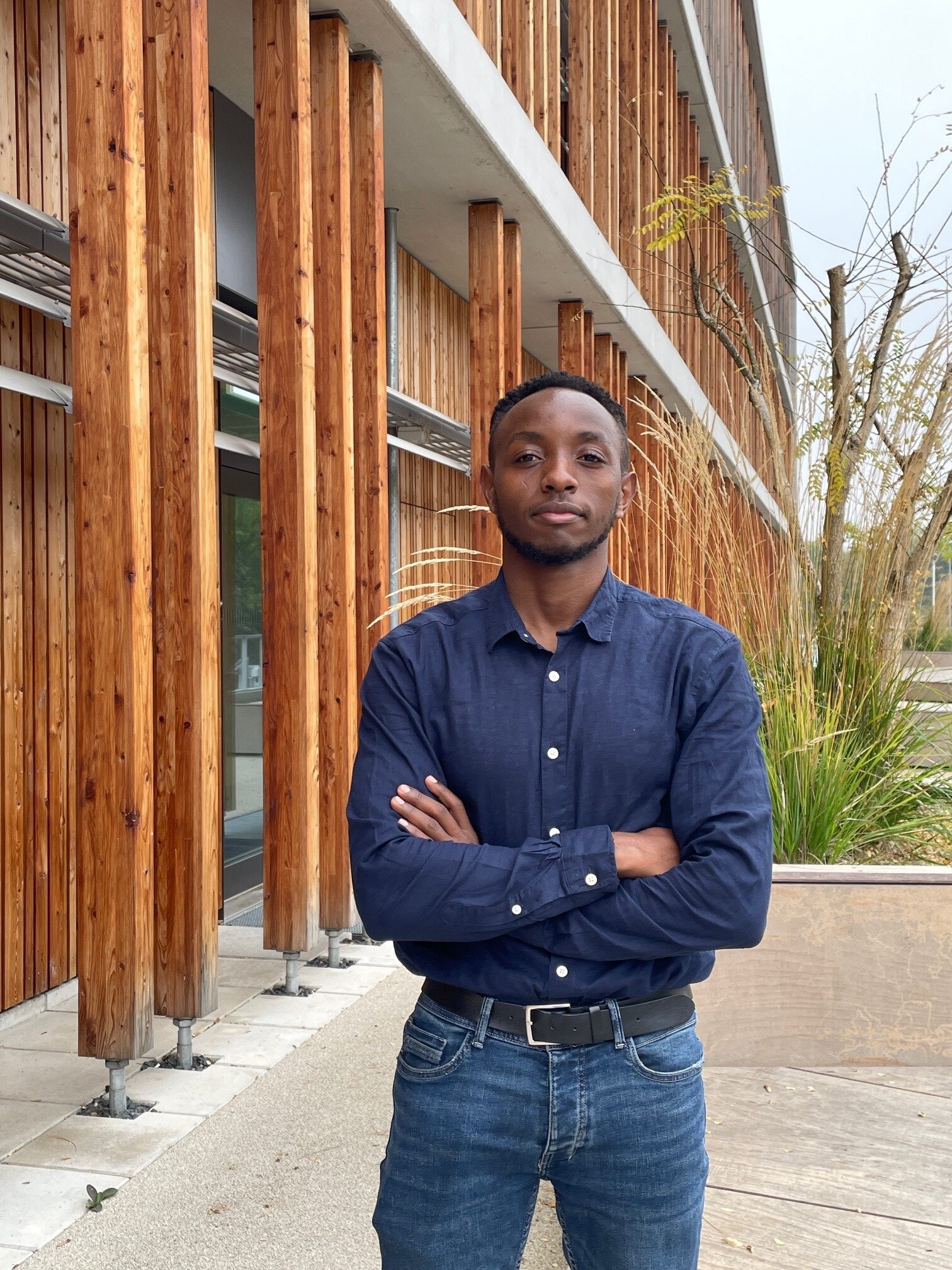Research Associate / PhD Student

Eric Gathirwa Kariuki, M. Sc.
Research Associate / PhD Student
Tel.: +49 (0) 9421 187-507
Mail: gathirwa.kariuki@tum.de
TUM Campus Straubing
Uferstraße 53
94315 Straubing
Uferstraße 53, Room: 02.3505.111
Vita
Employment History
- Since 10/2024
- PhD Student & Research Associate, Professorship for Bioprocess Engineering, Technical University of Munich, Campus Straubing for Biotechnology and Sustainability
- 09/2023 – 05/2024
- Lecturer (part-time), Department of biochemistry, Jomo Kenyatta Universtity of Agricultre and Technology
- 03/2022 – 11/2022
- Research-Fellow, International Sustainability Academy (ISA), Hamburg, Germany
- 06/2021 – 04/2022
- Bioinformatics Consultant and Teaching Instructor, The International Centre of Insect Physiology and Ecology, Nairobi, Kenia
Education
- 01/2024 – 06/2024
- Chemical Process Design and Techno-economic Analysis in a Developing Country Context
- 09/2019 – 06/2022
- Master Bioinformatics, Thesis: “Microbiome Metatranscriptomics of the Black Soldier Larvae Gut for the Identification and Functional Characterization of Lignocellulosic Biomass-degrading Microbes”,
Makerere University, Uganda and the International Centre of Insect Physiology and Ecology, Kenya - 03/2019 – 08/2019
- Molecular Biology Research Intern, International Center of Insect Physiology and Ecology, Kenya
- 09/2014 – 11/2018
- Bachelor Industrial Biotechnology, Thesis: “Production of Bioethanol from Water Hyacinth (Eichhornia crassipes)”,
Jomo Kenyatta University of Agriculture and Technology, Kenya
research project
Water hyacinth, an aggressively invasive aquatic plant, is found in freshwater systems across more than 50 countries worldwide, where it continues to threaten marine biodiversity and ecosystems. Large mats of water hyacinth covering water surfaces block sunlight from reaching aquatic environments, while the aerobic decomposition of the plant biomass reduces oxygen levels, negatively impacting water quality and circulation. This has caused significant harm to aquatic ecosystems, leading to the death of marine life and a drastic reduction in fish populations, with severe economic consequences for fishing, water transport, hydropower generation, irrigation, and domestic water supply. Water hyacinth, due to its abundance, rapid growth, ease of propagation, and low lignin content, has significant potential as a feedstock for second-generation bioethanol production. It could serve as a model for using other invasive plants as sustainable alternatives to fossil fuels. Mr. Kariuki’s research project, funded by the DAAD Scholarship and supported by the TUM-BVT, will focus on developing an optimized bioprocess to mitigate process inhibition, enhance microbial performance, and increase bioethanol yields from water hyacinth. This will be achieved through a model-based process design approach aimed at maximizing yields while deepening mechanistic insights into the underlying processes.
